Iran Says Germany Seeks To Expand Business Ties
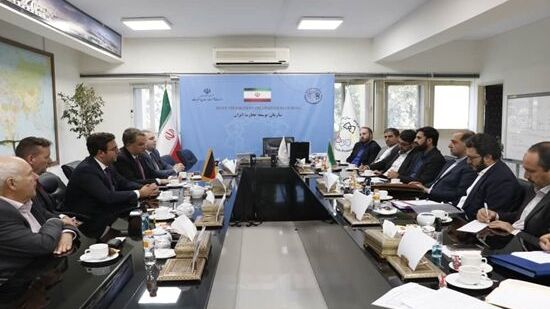
Iran says German businesses seek to expand their activities in the Islamic Republic through participating in Iranian trade exhibitions.

Iran says German businesses seek to expand their activities in the Islamic Republic through participating in Iranian trade exhibitions.
Chairman of the Board of the German Federal Association for Economic Development and Foreign Trade (BWA) Michael Schumann attended a meeting with Iranian lawmaker Ehsan Ghazizadeh Hashemi and Iran's ambassador to Germany Mahmoud Farazandeh as well as Alireza Peyman-Pak, the head of Iran’s Trade Promotion Organization on Tuesday.
According to the Iranian government’s website IRNA, Schumann said trade relations with the Islamic Republic can be expanded regardless of political issues. He welcomed the establishment of the Iranian trade center in Berlin, and called for allocating more space to German businessmen at expos in Iran.
The report quoted him as saying that sanctions imposed on the Islamic Republic have proven to be more detrimental to the German businessmen than their Iranian counterparts.
On July 21, the British ambassador to Iran also highlighted business opportunities to boost UK-Iran trade regardless of the result of the talks to restore the 2015 nuclear talks, known as the JCPOA (Joint Comprehensive Plan of Action). “Just back from Shiraz with our Trade Team... Plenty of great companies in Fars, with opportunities for quality UK products & services to boost UK-Iran trade, JCPOA or not,” Simon Shercliff tweeted.
Asked during a briefing about the British Ambassador’s remark, Spokesperson Ned Price referred to shared goals with European allies to uphold US sanctions until there is anuclear agreement with Iran.
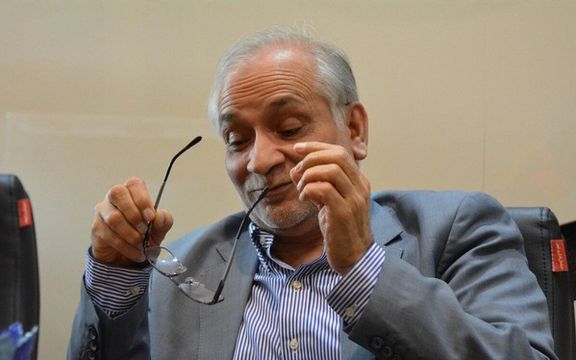
The leader of Iran’s centrist Executives of Construction Party, Hossein Marashi says only the Supreme Leader can confront and solve the current economic crisis.
He highlighted that the annual inflation rate has jumped from 40 to 60 percent during Ebrahim Raisi’s first year in office, and the vast majority of people face incredibly hard financial conditions.
Raisi, a hardliner cleric, with no relevant experience, became president in early August 2021, with the support of Supreme Leader Ali Khamenei and his loyal followers among the military and conservatives.
Marashi, who is a regime loyalist but with business and technocratic background, in an interview with Didban Iran [Iran Monitor] news website on Monday, argued that the Islamic Republic needs to return to its senses and only Khamenei can make this happen.
The current 60 percent inflation figure is based on an optimistic assessment, he noted, adding that pessimists in Iran say annual inflation is over 100 percent. Marashi maintained that Iran’s problems, highlighted by its economic crisis, is beyond the powers of other officials, including the president or parliament to solve.
“No one other than Khamenei can rescue Iran from this crisis,” Marashi sai
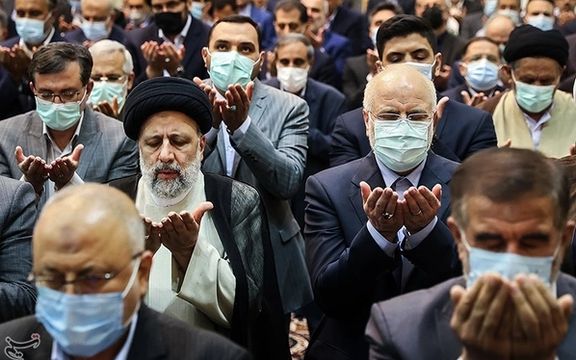
d. The remark implicitly hints that Khamenei as top decision maker in major foreign policy, political and economic matters, is responsible for the current crisis.
The main issue dominating debate in the wider Iranian circles is about the nuclear program and the resulting United States’ sanctions that have exacerbated the difficult economic situation. Khamenei is seen as the only real decision-maker on the nuclear issue.
Meanwhile, Marashi ruled out Raisi’s occasional remarks about the former government of President Hassan Rouhani being responsible for Iran’s problems, adding that “Raisi is a non-expert in executive affairs and makes many such uncalculated comments.” Instead, Marashi largely blamed the Raisi administration and particularly his former Labor Minister Hojjat Abdolmaleki’s manipulation of the annual budget bill.
In another development, reformist Ali Mohammad Namazi said in an interview with the conservative Nameh News website that frequent protests in Iran indicate dissent and dissatisfaction. He suggested that Raisi Administration officials should have sat down with the top executives of the previous government to determine the root cause of Iran's problems and focus on solving them rather instead of simply baling their predecessors for all problems form a whole year.
Namazi criticized the Raisi administration for the effective devaluation of the Iranian currency and price rises for medicine, housing and everything else. Iran’s currency is near its all-time low of 320,000 rials to the US dollar, a more than 25-percent drop just since March.
He further criticized the government for its broken promises in the areas of housing and employment. The Raisi administration had promised to build one million apartments and create one million jobs every year. Namazi said that even one-tenth of this promise has not materialized.
Meanwhile he criticized the government's foreign policy, saying that "there is every indication that the talks aimed at reviving the 2015 nuclear deal will not be fruitful, adding that it looks like…either the [UN Security Council] trigger mechanism will be activated, which means even more sanctions, or Iran will be facing a military attack in the future."
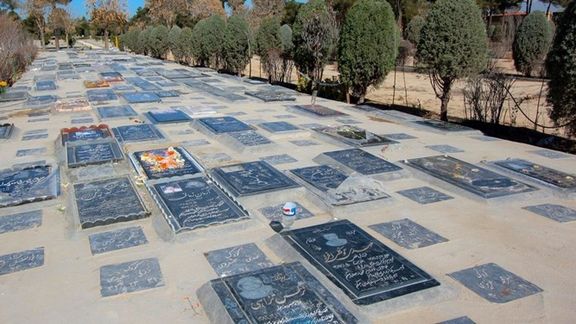
Iran has started policing the compulsory Islamic dress code – or hijab – on the tombstone of the country’s largest cemetery, located in the southern part of the capital Tehran.
The director of the Behesht-e Zahra, Saeed Ghazanfari, confirmed on Monday that the cemetery has removed about 100 gravestones which had pictures of deceased women without veils.
He added that the procedure will continue in the future "in accordance with the opinion of [religious] scholars" until all the gravestones with such pictures are removed, adding that a four-member team has been set up to prevent the installation of stones with unconventional images.
He claimed the move was made "in coordination" with the bereaved families to get their consent, but social media reports say the families were contacted after the pictures were removed.
Iran’s security organs have also started arresting women who participated in a nationwide civil disobedience campaign against hijab on July 12.
Following a call by women’s rights activists for civil disobedience with the hashtag of ‘No2Hijab’ social media exploded with dozens of videos and photos of women unveiling in public.
In the past few weeks, the government has increased harassment of women for their insufficient hijab and many have been detained by special police patrols.
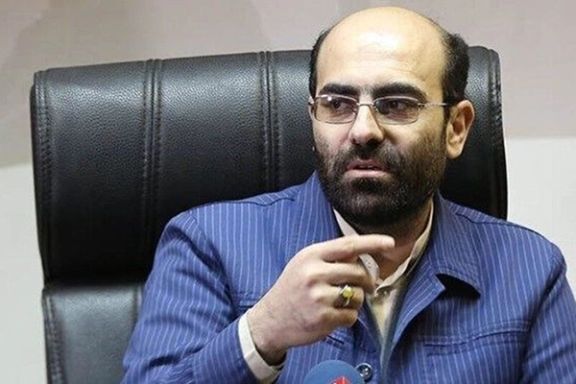
An Iranian lawmaker says the military cooperation between Tehran and Moscow has upset the political equations of the global order, confirming Russia’s request to buy Iranian drones.
Hadi Beiginejad, a member of the parliament's energy committee, told the Iranian government’s official website IRNA on Tuesday that Iran’s progress in the field of building unmanned aerial vehicles has significantly changed the country’s image in the international arena.
He said selling drones has strengthened Iran's ties with friendly countries, describing it as a beneficial factor for the peace and stability of the region.
He added that the United States has admitted to rise of Iran’s might in drone productions, and is well aware of the cost of dealing with Iranian drones in the region.
US National Security Adviser Jake Sullivan warned twice in July that Moscow appears to be looking at buying Iranian drones and Russian officers even visited a drone base in Iran’s Kashan to review their options. His statements hinted at possible training of Russian crews to operate the drones and said the this would cause more civilian deaths in Ukraine.
Meanwhile, the head of US Central Intelligence Agency, William Burns said on July 20, “It’s true that the Russians are reaching out to the Iranians to try to acquire armed drones,” Bloomberg reported. Secretary of Defense Lloyd Austin and Chairman of the Joint Chiefs of Staff Gen Mike Milley also confirmed that Russia is planning to obtain Iranian drones to strengthen its weakening position in battles.
An adviser to President Volodymyr Zelensky told Iran International on Monday that Russia and Iran are allies in the Ukraine war and it won’t be a surprise if Tehran supplies drones to Moscow.
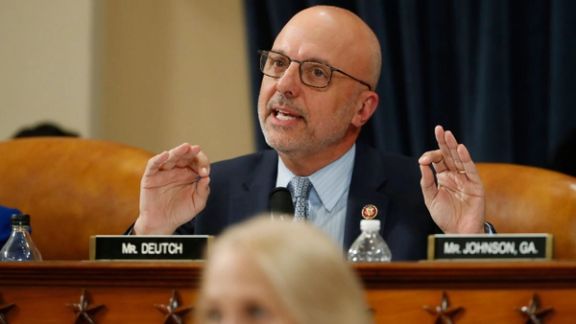
A US lawmaker has expressed concerns about Iran’s not turning on the UN watchdog IAEA’s monitoring cameras until a nuclear deal is revived.
Florida's Democratic Representative Ted Deutch said on Monday that Tehran’s decision is extremely worrying, underscoring his “deep concern about how any nuclear deal with Iran can be verifiable and enforceable.”
He described the decision as “particularly egregious” after Rafael Mariano Grossi, the director general of the International Atomic Energy Agency (IAEA), reiterated that Iran's nuclear program is "galloping ahead," and saying that the IAEA would lose its understanding of the state of Iran's program if the cameras were not restored in three or four weeks, a window that has since passed.
“Moreover, Iran also just declared that it will not answer IAEA’s outstanding questions about uranium particles found at undeclared nuclear sites in Iran, directly contradicting the censure resolution that was overwhelmingly passed by the IAEA Board of Governors last month,” Deutch added. Tehran’s relations with the agency have particularly soured since the June’s resolution.
The US congressman highlighted that such announcements “reflect Iran’s dangerously escalatory nuclear behavior,” saying that he is glad about the US commitment to ensure that Iran will never acquire a nuclear weapon – which was strengthened by the Jerusalem Declaration.
Iran’s atomic chief Mohammad Eslami said Monday Iran would not switch on nuclear-monitoring cameras turned off in June until the 2015 nuclear deal, officially known as the JCPOA (Joint Comprehensive Plan of Action) is restored.
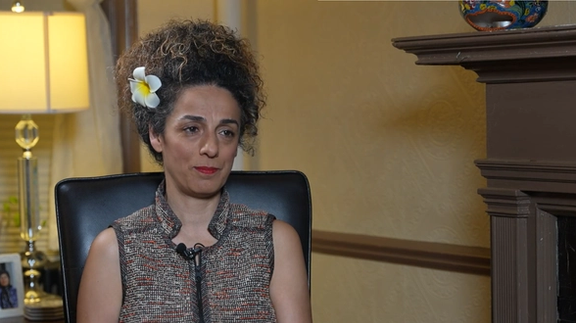
A women's rights activist with over 7 million followers on Instagram has warned that Iran may be manipulating the platform’s moderation system in its own favor.
In an op-ed entitled “Does Instagram Have a Problem with Iranian Dissidents?” in the Washington Post on Monday, the US-based activist Masih Alinejad recounted her recent problems with Instagram including loss of access to Instagram’s ‘live’ feature. She said this happened right after she posted a video of a confrontation on a city bus in Tehran between a hijab-wearing woman and another who refused to cover her head.
The video posted by Alinejad went viral on social media and had over 2.5 million views on her own account within a short time.
Ali Khan-Mohammadi, the spokesperson of Iran’s Headquarters For Enjoining Right And Forbidding Evil, tasked with promoting the Islamic Republic’s interpretation of Islamic laws, said on Saturday that based on the Islamic Republic’s Penal Code any cooperation and sending videos to Alinejad could result in one to ten years imprisonment.
Khan-Mohammadi argued that sending material to Alinejad would be considered as collaboration with “enemies and hostile media networks” because since 2021 she has been “an official member of the CIA”.
Asked by the Washington Post to comment, an Instagram representative said the restriction “was placed on Masih’s account incorrectly because of a technical issue,” explaining that the platform automatically issues restrictions “when our systems detect spammy behavior.” The representative added: “It is against our policies to take action on accounts at the request of the Iranian government.”
But Alinejad is not convinced and says it is not some random glitch as it appears there even a more serious issue. Some fellow Iranians have not been able to find her on Instagram despite having an officially verified account and millions of followers.
“Technical issues happen; social media restrictions aren’t necessarily proof of censorship or nefarious influence. But there’s a troubling pattern here,” she wrote.
“Why did the system restrict my account right at the moment when I was about to promote a protest against compulsory hijab? If algorithms have the power to restrict accounts, can the Iranian regime game those systems in its own favor?” she asked while mentioning that human factor could be involved.
In the past few months other Iranian activists and groups have complained about restriction on public access to their Instagram direct messages as well as removal of hashtags, videos, and posts related to ongoing protests in the country.
In May, a Persian-language content moderator for Instagram and a former content moderator told BBC Persian that Iranian intelligence officials offered them money to remove Instagram accounts of journalists and activists. Both content moderators also accused some Iranian colleagues of exhibiting "pro-regime bias" when reviewing posts on the photo-sharing service.
The former content moderator who spoke on condition of anonymity told the BBC that he "personally knew some reviewers who supported the Iranian regime and received instructions from Iran".
Both the current and the former moderator worked for the Germany-based Persian-language moderators’ group of Telus International, the third-party company responsible for dealing with reports and complaints from Instagram and Facebook users.
In May, Iran International also complained about its videos from protests in Iran being removed by Instagram.
Instagram which has around 45 million users in Iran is the only major social media platform not blocked in the country where other platforms such as Facebook, YouTube, WhatsApp, Twitter, and Telegram cannot be accessed without the use of internet blockage circumvention software and VPNs.
Iran has one of the world’s worse internet censorships, with tens of thousands of websites blocked since the early 2000s and most social media platforms banned. In the absence of free media and the very high level of censorship, many Iranians turn to social media for political news and information.